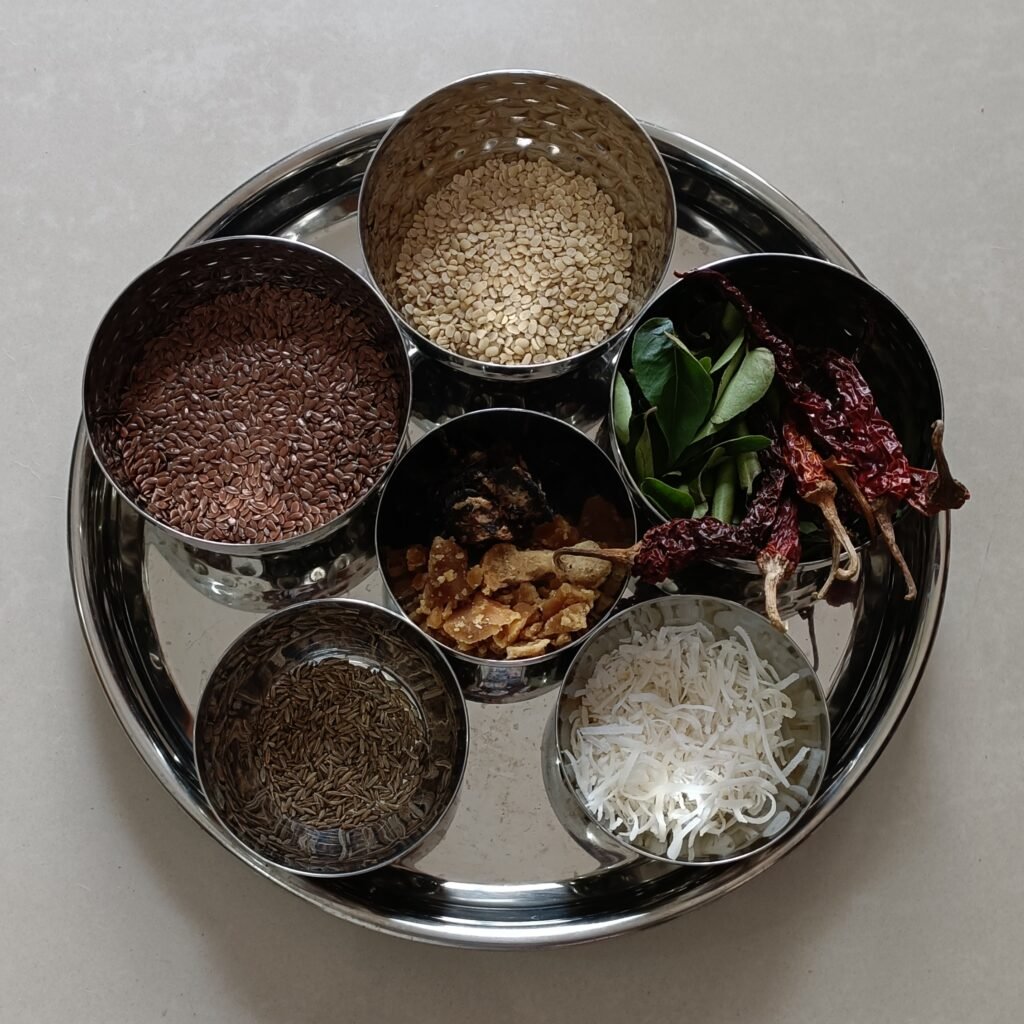
Alsi ki Chutney with Coconut (Flaxseed Chutney)
Flax seeds are rich in the essential omega-3 fatty acid alpha-linolenic acid (ALA). Flax seeds are usually ground before eating them to release the oil locked up inside the fibrous structure of the seed and which cannot be released when eaten whole.
Flax seeds also have high amounts of protein as well as soluble and insoluble fibre, which help regulate blood sugar and cholesterol levels and promote digestive health by providing the required food for beneficial gut bacteria. Flaxseed powder is often used to replace egg for its binding quality when mixed with water, and so it is recommended to drink plenty of water when one eats flax seeds. The proportion is usually 3 parts of water to 1 part of flax seed powder. This mixture is also a natural laxative.



